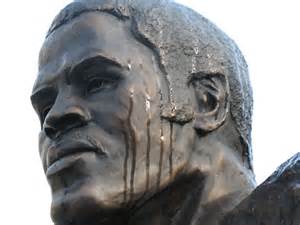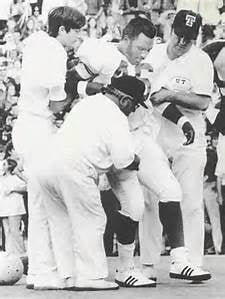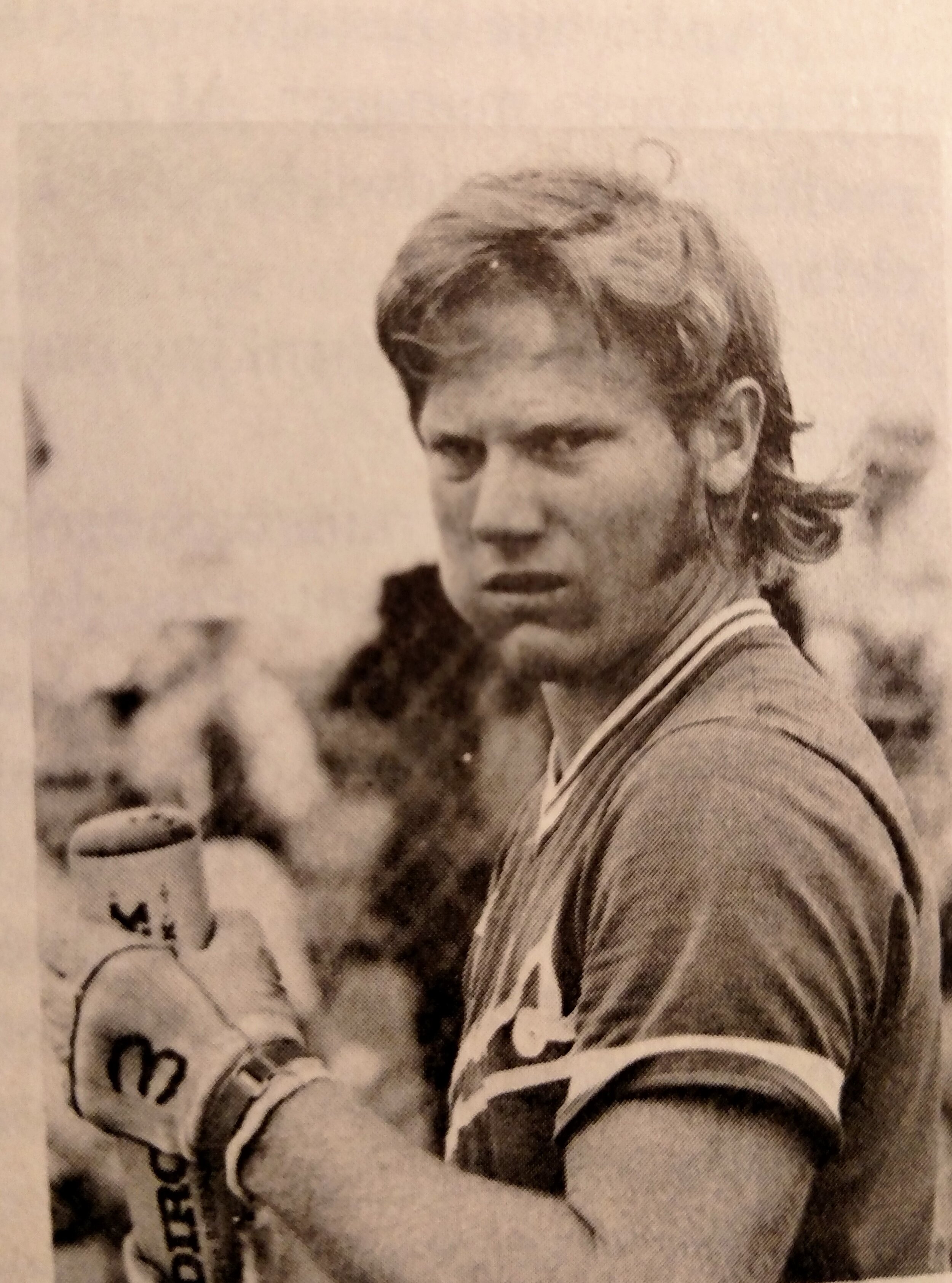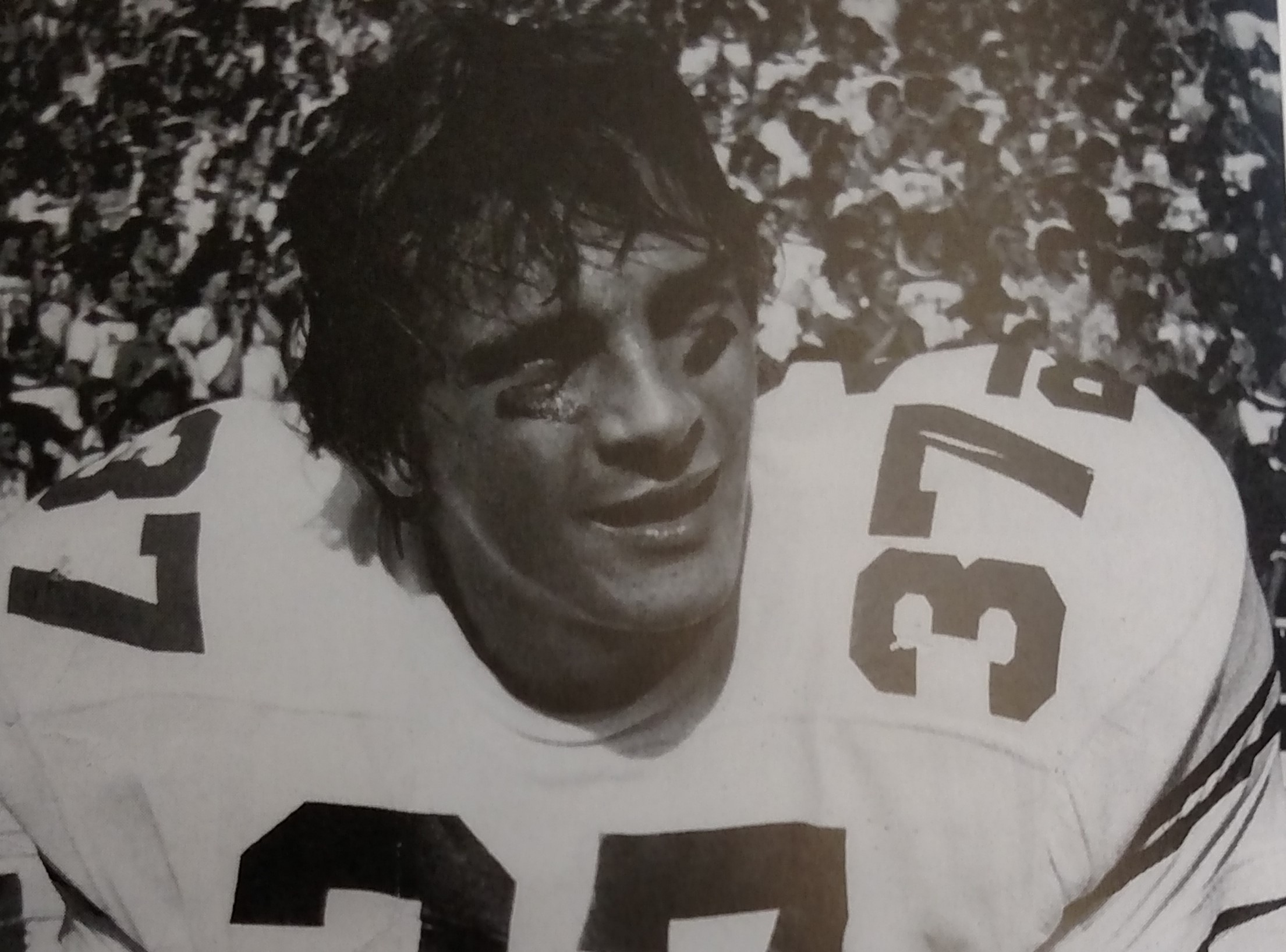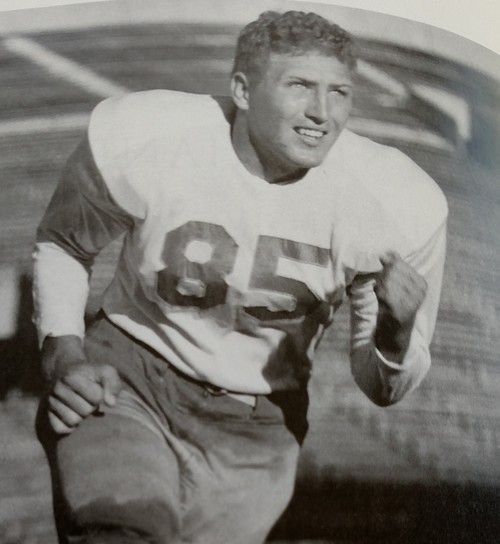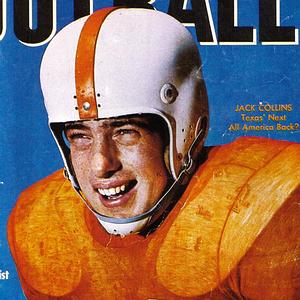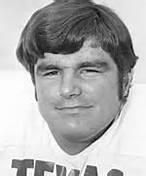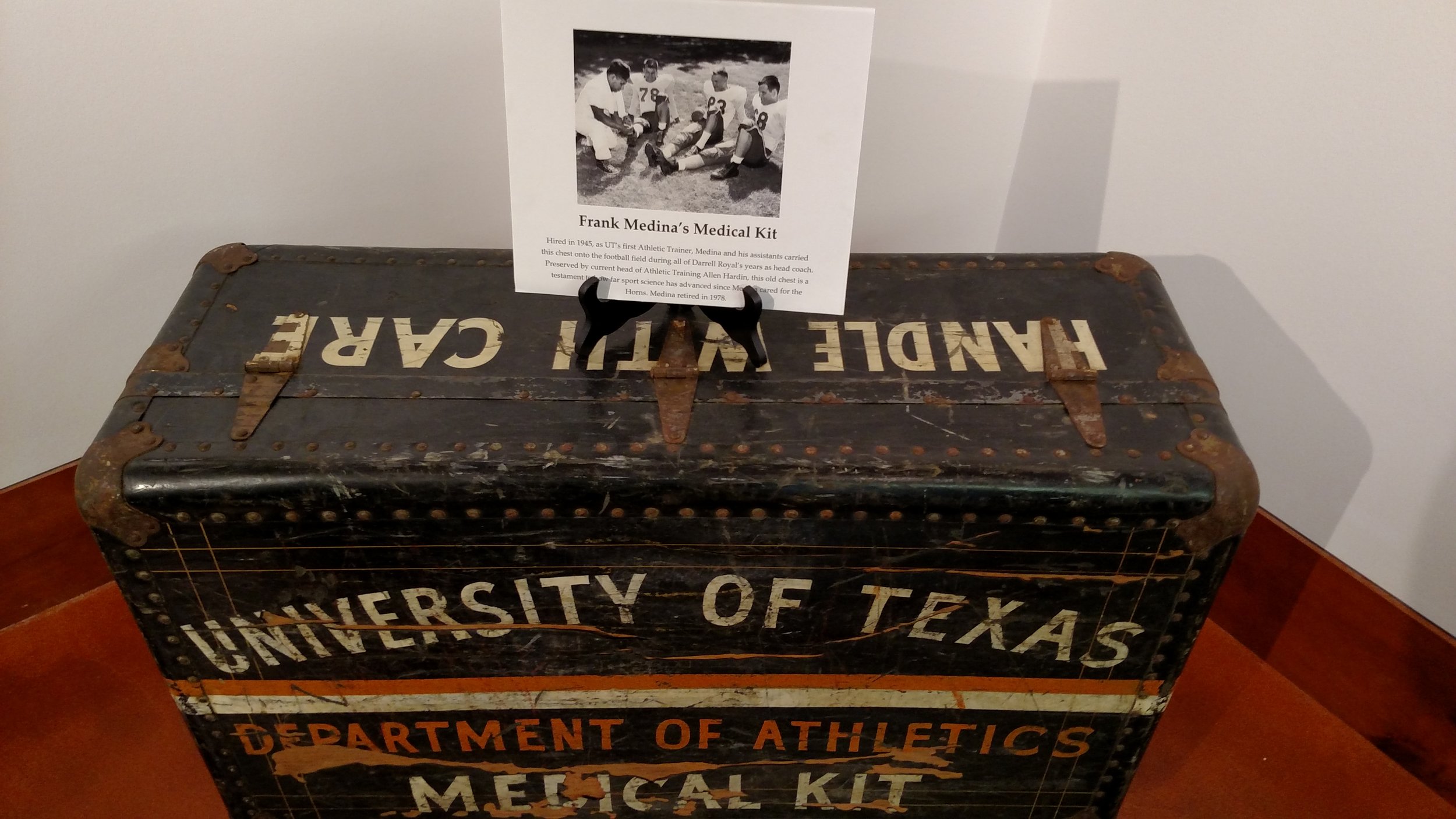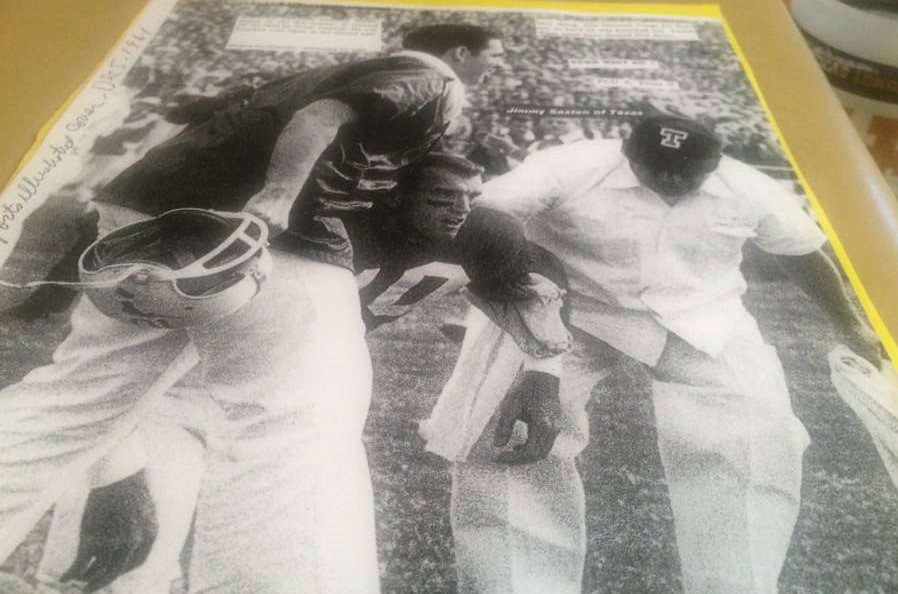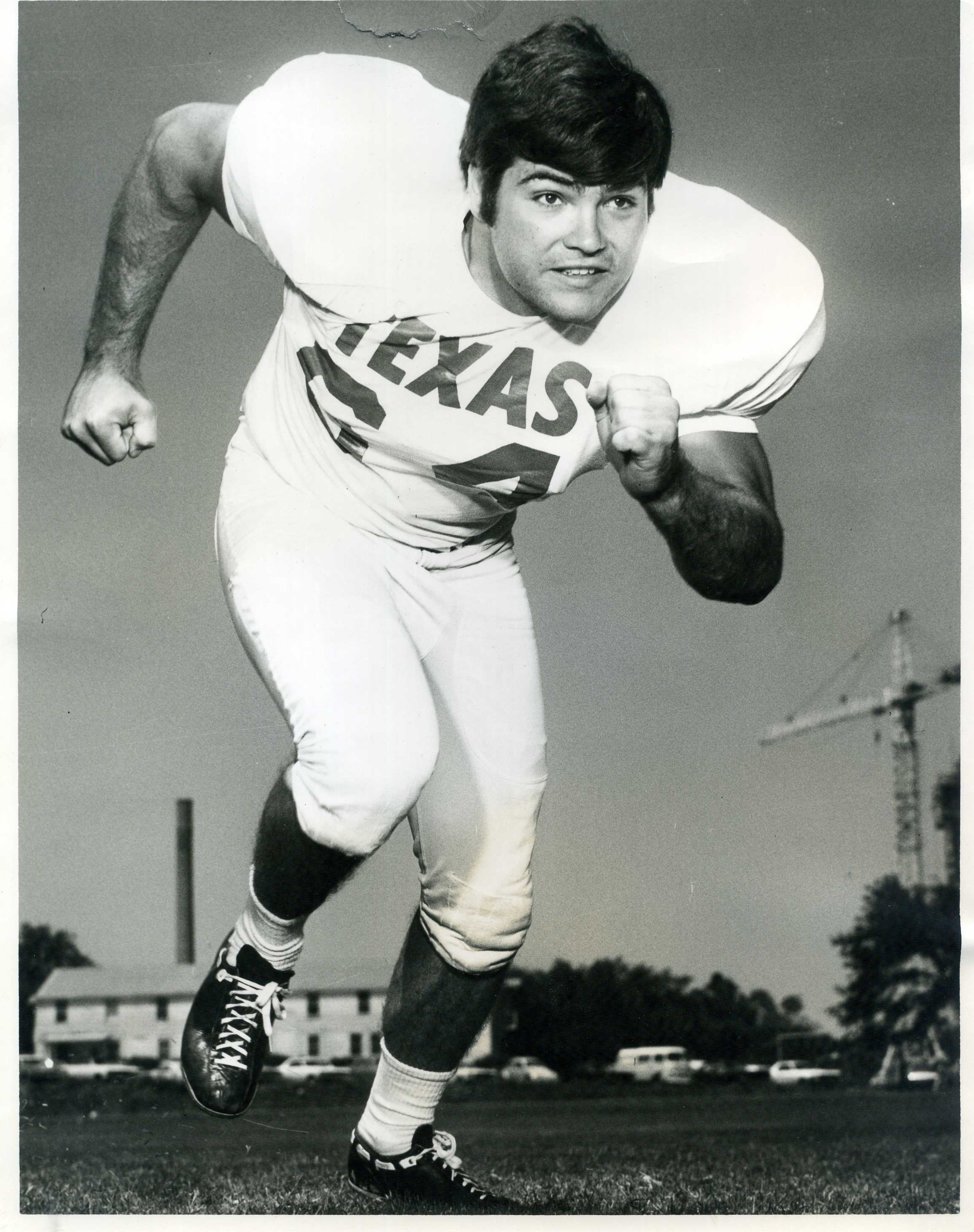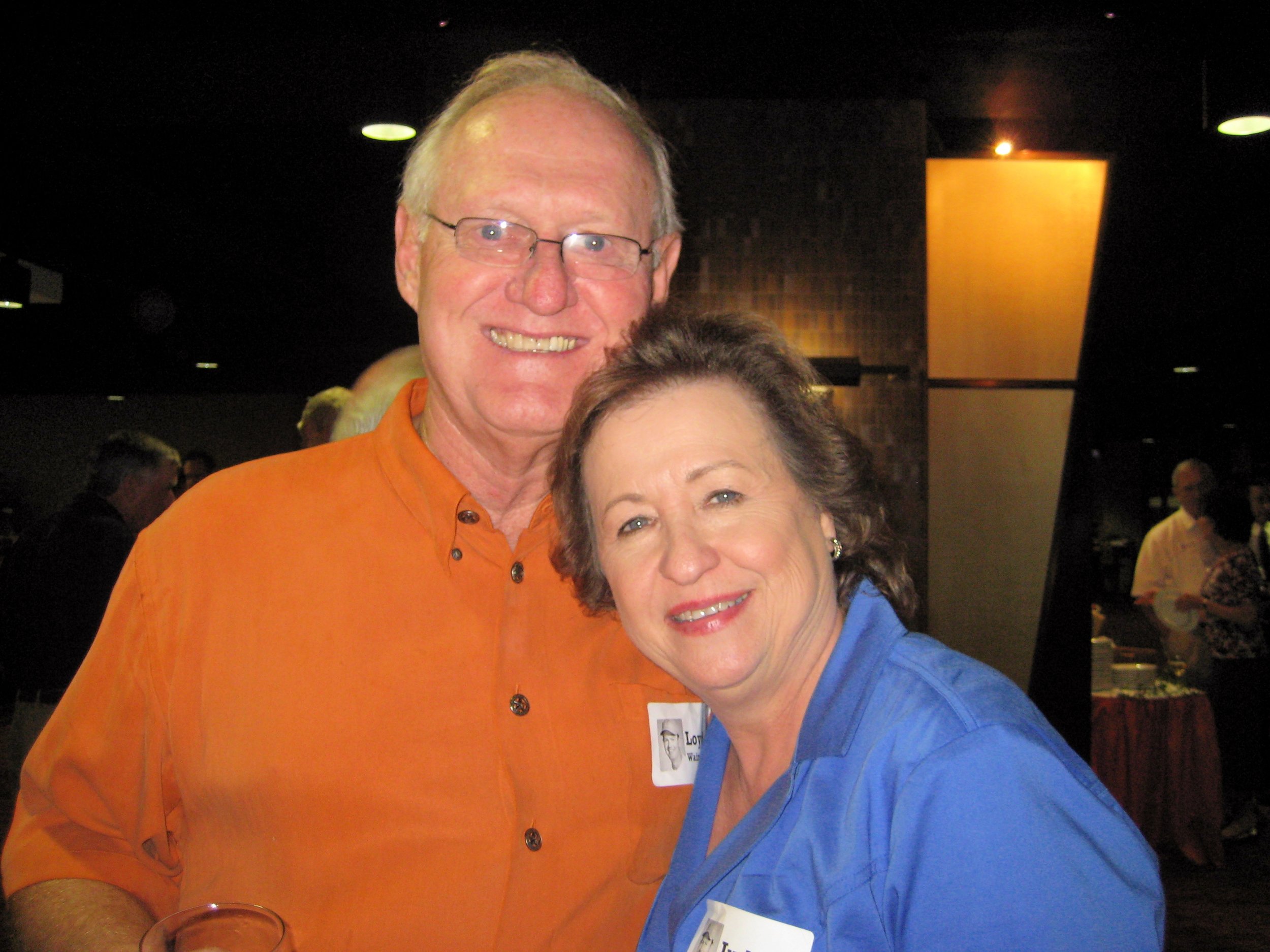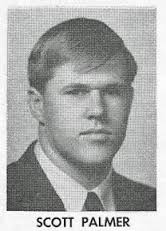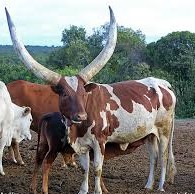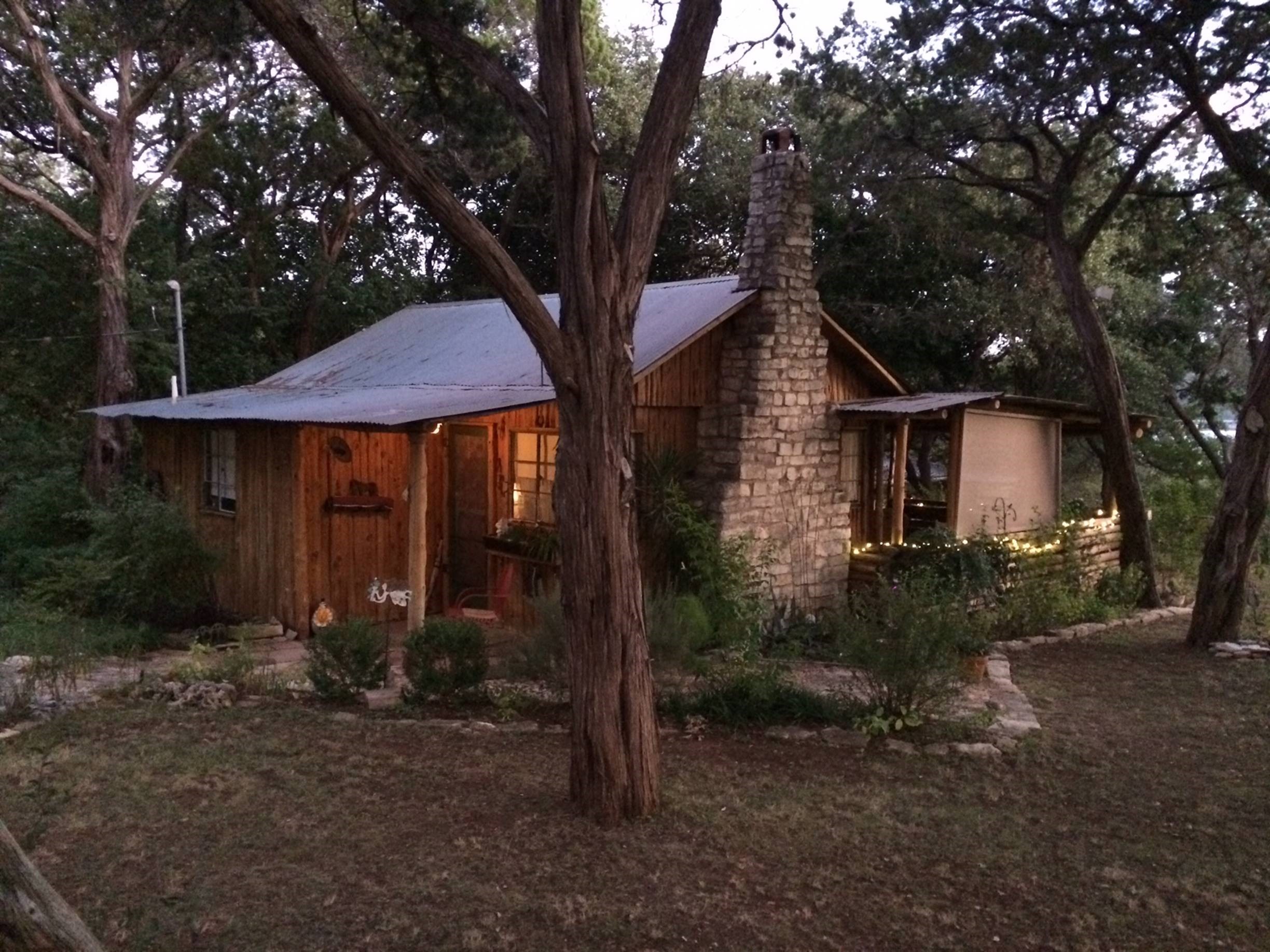Frank was a very special guy to me and tried to help me improve my performance as an athlete while growing up in the locker rooms! His adoptive son Randy was a classmate at Brykerwoods Elementary since we lived in the same neighborhood! I remember his neighbor had a pet lion which was brought to my home on Northwood Road. Frank could be mean and tough but had a good heart to help you! His wife was a blond and quiet not an Indian.
To add depth to the History And Evolution Of Conditioning And Weight Lifting for the Longhorns, some content and photos from the Stark Center site are used on the TLSN site.
One of the Stark Centers directives is to study Kinesology's effect on athletes and sports. If you want more information about the Stark Center, Please visit the Stark Center at 403 East 23rd Street North End Zone, Suite 5.700 Austin, TX 78712. their Phone # is 512-471-4890, or you can visit their site at http://www.starkcenter.org
4'10" Frank Medina joined Coach Bible’s staff in 1945 and for the next 32 years under 5 Longhorn coaches, he converted boys to men.
He was so well respected that he was selected as the head trainer for two U.S. Olympic teams.
Franks's reputation received special notoriety during Royal’s tenure at Texas. Coach Royal and Frank Medina believed that football was not a sport for the weak-spirited.
In Coach Royal's first year as head coach in 1957, DKR tells Medina to get the players in shape. Frank loved his job, but none of the players loved him doing his job. He drove the players hard during the infamous "Medina Sessions." The survivors were “medina-ized” and made the team.
Unlike today’s players, Frank did not tolerate fat players during his years as Longhorn head trainer.
Frank had an infamous “fat farm” that he used in torturous ways to eliminate fat. Wind sprints carrying blocking dummies, running the stadium seats, exercising in the steam room, followed by 3- minute rounds of punching a bag were all part of the fat-burning routine. His favorite comment during these exercise sessions was:
“show me what you got son!”
Bill Little says in his book Stadium Stories “The most significant tributes to Frank Medina always are personal- a product of the mind. Because this is where he challenged you.” “As good as he was with the tape and the liniment, the rehab, and the exercise, the mind was where he did his best work. For the Longhorn football players with whom he worked, remembering Frank Median is highly personal because his relationship always came down to man to man.”
Jay Arnold who trained under Frank Medina says “At times I have wondered if the “Big Man Upstairs” (as Frank referred to Him) has chosen Frank to receive those who made it to Heaven by the ‘skin of their teeth’, and that I was in that category, and would once again have to endure another “Medina Session!”
Letter From Frank E. Medina
Dec. 19, 1973
Billy,
I recently found this letter from the venerable Frank E. Medina, our Trainer. It was sent to members of our Longhorn team at Christmas time, which was unusual. Normally, Frank sent letters pre-season and pre-spring training, letting us know what he expected from us during the season and during spring training. This was the only letter at Christmas time that I recall getting from Frank in my years at The University of Texas. And, frankly, the only one that I recall during my years, that extolled our team in such a manner. Perhaps other teams received such letters. Upon returning to campus on the day following Christmas to begin preparing for our January 1, 1974 Cotton Bowl game against Nebraska, I thanked Frank for his letter, while he was wrapping my ankles before practice. He replied, “Son, I am extremely proud of this group of men. You men have continued the winning tradition and this is our sixth Southwest Conference championship in a row. You men were picked number one in the preseason and lost the first game out of the box [Miami]. You did not quit. You rose as Champions....as a team....never quitting.”
I recall asking Frank the meaning of the word ‘epicedium’ that he uses in his letter. In his short sentence, staccato speech, Frank stated, “A funeral song...this team refused to die....refused to quit....would not give up son! I am proud of that. That is what we try to instill in our men here at The University of Texas.”
We lost the Cotton Bowl game. I was thankful I was graduating and wouldn’t be participating in the ‘Medina Drills’ that would begin in January of 1974 in preparation for spring training. As all of us know, Frank, his then 1st Assistant, Spanky Stephens, took all losses personally, but especially the Cotton Bowl losses. And their pre-spring training drills reflected such.
Below is Frank’s letter.
Respectfully, In Memory of Frank,
Jay L. Arnold
Herb Grey broke my leg holding a dummy first day of practice 1952. It turned out to be a blessing. Mr Medina took me under his wing taught me how to be a trainer which was a big help in my football coaching career. I got two coaching jobs when school districts called me and said Mr Medina recommended you the job is yours. One year he tried to get me the trainer position at The U of Maine. Super man in my books
Dwight Jefferson 1976-1978 shares a comment that Frank used often with Longhorn athletes. Frank made sure that all understood “You have an opportunity to get an education at The University of Texas through your athletic ability.” Don’t blow it!
In 1972 Gary Shaw, a former Texas football player, writes a book called Meat on the Hoof, and he mentions the "Medina Sessions." The author says that "cattle are treated better than the football players." Most of the comments in his book are vindictive, exaggerated, and untrue. I know because I trained under Frank Medina. However, even after discounting Gary's exaggerations, hitting a punching bag until I could no longer raise my arms was still painful.
During Coach Royal's early years at Texas, the players were remarkably free of injuries. Part of the reason was great conditioning, and the other reason was injury denial. Medina's mental game that made players feel tiny was a screening mechanism for traffic to the training room. If they went into the training room, they better be hurt.
Medina made it known that he did not kiss boo-boos to make the pain go away as mommy did. His job was to heal legitimate injuries. The players got Medina's message of no boo-boos allowed" in the training room, choosing to play hurt rather than enter Medina's rehab program.
Frank, on occasion, to enhance the healing process, would drive the player miles from campus and tell him to walk back.
Frank Medina as Yoda
Frank had an unusual speech pattern that took liberties with the English language. The way he constructed his sentences and his cadence was Yoda-like long before the First Star Wars Movie.
I can still hear Yoda ( Frank Medina) making the following comments.
The Player says, "I can’t believe it" and Medina says, "That is why you fail.”
Frank says " I cannot teach him. The boy has no patience."
Frank’s philosophy " Do, or do not. There is no try." "You think Medina stops teaching just because his student does not want to hear? “A teacher Medina is. "
Work-out schedule for summer 1977
The two years I tried out for football Herb Gray broke my leg while holding a dummy. On the first day of practice, a great friendship developed with Mr. Medina I was playing semi-pro baseball. Running track, swimming, and competitive trampoline so when I broke both jaws early in my sophomore year Mr. Medina said, “Pat, we look for football players who are agile, mobile, and hostile; your fragile go play those other sports.” The best part of our friendship was as a high school football coach, I got three different calls offering me a job each told me I didn’t need to interview because he had recommended me. What a great gentleman he was to me
Coach Pat Patterson (Melvin)
Patterson with Craig Fox, Guy Hogstette , Brent Baker
Some Feedback By Some Of The Players During The Medina Years :
Ray Cunningham, the All American in the 120 yard high hurdles in the early '60s, is quoted in the book Champions authored by Carlton Stowers and Wilbur Evans, saying that part of Medina's reconditioning program after his leg injury was a "Medina-assigned" walk from Round Rock back to campus. Rumor has it that Ray met many fine people who were not afraid to pick-up hitchhikers wearing U.T. track clothes, so the walk back for conditioning could have been compromised. If so- Ray never mentioned the ride home to Frank Medina.
Jim Moreno attended Harvard Medical school, but as a young man in high school, he received the required treatment from Frank Medina. Jim says, “ Frank took his hand, slapped the muscle, and pressed down and to the sides. I screamed with pain. Frank responded to the scream by saying, “didn’t know you were so feminine.” “From then on, I bit my tongue and kept quiet.”
Roosevelt Leaks, fullback, 1972-1974: "Frank got us in shape. He did do that. When you talk about doing whatever it takes to get it done--not just in football--Frank had a lot to do with that. When times get hard today, most of us keep going, and that attitude is because of Frank. You learned little things that didn't make a big impression then, but today you're still doing those things and you wonder why. It's because we were taught how to get things done."
Keith Moreland, defensive back, 1973: "When you're in two-a-days, and the AstroTurf gets to 115-120 degrees; you really get to know the courage that human beings have; to be able to put up with all that and go through what you have to go through. In those days, Frank Medina gave no water breaks. The only thing you had was a frozen sliced orange. Boy, that orange looked pretty good most days."
Coach Gustafson remembers a troubling situation when taskmaster Texas trainer Frank Medina approached Gus about baseball great Keith Moreland. Medina’s said, “I got a player who’s a little bit lazy.” “Keith Moreland won’t do anything I’m trying to get him to do. He’s always last in the line. He won’t run. He won’t do anything.” Medina suggested that Keith should be kicked off the team. Gus was shocked at Medina’s comment and responded, “Frank, “I can find another trainer. I can’t find another All-American third baseman.”
Glenn Blackwood, defensive back, 1976-1978, elaborates in more detail about the Longhorn Yoda. He says "You know what he was like? Darrell Royal was Obi-Wan Kenobi, and Frank Medina was Yoda. This little guy was a piece of work. 'Mr. Man. Come on, Mr. Man.' Medina would say. He couldn't remember our names, so he just called us all 'Mr. Man.' One time he had us run the religious relays. 'I want the Baptists over here, the Methodists here....' I've never seen anything like him".
David Anderson also agrees with the Yoda comparison for Medina. David quotes Medina (Yoda) "Size matters not. Look at me. Judge me by my size, do you? Hmm? Hmm. And well you should not."
"Judge me by my size, do you? HMM. And well you should not."
Tom Stolhandske, defensive end, 1950-1952 says: "Frank Medina--the Little Indian--was our trainer. You didn't want to go see him....if you got under his control for some kind of treatment, it was absolute horror. I'd walk into the training room and see somebody in the steam bath--locked in, pounding on the door, trying to get out."
"If Frank put you in there for x minutes, you were going to stay in there for that amount of time, whether or not you passed out. He'd get you in the stadium and make you run to the top, some 70 or 80 rows, back and forth, back and forth...he'd give you the dummy to carry. I injured my ankle against Oklahoma.... We got back to Austin, and he said, 'Come get some treatment.' I said, 'Frank, I didn't hurt my ankle; I just thought I did. Tape it up.' He wasn't about to get me in that training room...."
Jack Collins, halfback, 1959-1961: "One week--the week of the OU game--I cut a class. And I remember having to run stadium steps with Frank Medina at 6:00 in the morning. I mean, I don't care if you were a starter or what. You didn't get by with that....I remember him taking some guys up to Round Rock and just letting them out of the car. They probably hitched a ride, but he wanted them to walk back to Austin to lose weight."
Jerry Sisemore says Frank’s favorite saying was, "What are you saving it for, son? What are you saving it for?' We'd run the stadium steps and had to do it 10 times. It's only 75 steps to the top of the stadium, and at first, we thought, 'It's probably a nice view up there.' By the time we got to the eighth time, we were crying. We'd jump rope and punch the bag. This was off-season with Frank. After the workout, everyone else would go to dinner, and he'd get the fat boys in there with weight vests on. They'd do sit-ups with dumbbells, and he'd count to 500. 'What are you saving it for, son? What are you saving it for?' It was a gut-check.
My senior year against Baylor in Waco, I sprained my ankle--just ripped it right before halftime. Frank used about 6 rolls of tape on it. We were in the 3rd quarter when he finished taping it. Frank says, 'Okay, I've wasted enough tape. What are you saving it for? I'm going to lock this door, Sisemore. Are you going to sit here locked in, or are you coming with me'? But if you go out there, you're playing.'
He was that kind of guy. He could push you further than you wanted to go. I didn't want to go back in, but I had no choice; I wasn't getting locked in there. I knew he was just trying to push me. So I finally said, 'Okay, push me. I'm in.'
Guys loved him; you knew where his heart was.
Bobby Mitchell said in the book Echos of Texas Football that Medina " was running people off". "Medina was somewhat of a henchman.
Loyd Wainscott's wife Barbara shares a memory of Frank Medina's impact on Loyd's life.
She says "Loyd loved Frank but he respected Medina Sessions! Frank decided Loyd gained too much weight his freshman year and when he sent him home for the summer he gave him strict instructions to "not eat anything white". Loyd followed his instructions to the T. When he got back for two-a-days Coach Royal saw him and said "My God! Where did you spend the summer...in a concentration camp?!" and he put him on the scales. He had lost down to 197 lbs. Loyd told him what Frank had instructed and Coach yelled "FRANK!"...as Frank went scurrying around the corner, nowhere to be found. From then on Frank took Loyd under his wing to bring him back. He would take him into the backroom to tape his ankles where there was air conditioning and give him Mama Medina's cookies and milk. He even gave me an interview for the school paper for my journalism requirements and gave me a hand-woven peasant purse from the old country. He had a very special place in Loyd's heart, as I'm sure he did in many a Longhorn player.
Barbara Wainscott
Scott Palmer had his own experience with the "hike". Scott says that The "Sunday after the OU game in 1968 in which I had hurt my knee, he had me meet him at the stadium that morning. He had me dress in sweats, grab one of the weight vests, and took me out to the team hotel miles north of campus. I was then informed to look him up after I walked back to the stadium. I didn't wear socks. After about five miles, I tried hitching a ride, and a player's dad saw me and took me the rest of the way. To my surprise, by Monday my knee was better but not the blisters on my sockless feet. Genius, I guess."
In Franks Bio housed at the Stark Center, there is an insightful point made about Medina. He was "never an advocate for heavy lifting; Medina played an important role in professionalizing the athletes' conditioning program. In addition to starting the first off-season workouts at UT, he also introduced true physical therapy procedures to the UT athletic department. He also brought distinction to the university by serving on two Olympic teams, and he worked with athletes from a wide variety of sports."
Frank passed away in 1989, but his contributions to Longhorn traditions remain a portal to the past that reminds Longhorn fans that heritage shapes the present and empowers the future. Frank Medina is a bridge-builder connecting the past with the present and the future.
1973 letter to the football team
Horns Up!!
Rey Moreno remembers Frank Medina conditioning drills
Granted, you football guys had it really tough, but we track guys had it tough also. When the Horns had a 6-4 record in 1965 after being ranked #1 early in the season, Royal said no bowl game. This freed up Frank Medina to put the track team through “Medina sessions” between Thanksgiving and Christmas break.
A workout would be: dressed in 2 pairs of sweats with a weight vest; we would run bottom to the top of Memorial Stadium stands about 15 times. We would then go under the stadium and jump rope, waiting to climb a 25 ft rope. After that, we would go into the football locker room with the heat turned up and do circuit training. Medina would stand on a bench with a whistle in his mouth, holding on both ends of a white towel around his neck. All you guys that played under Medina remember that pose. There would be barbells to do curls or presses, a push-up station with your feet on the bench, 20 lb weight behind your head to do sit-ups, and many similar exercises. Medina would blow the whistle, and you would start the exercise; he would blow it again after 2 minutes, and you would move to the next station. There was probably a 1 to 2-minute rest between stations. I thought the toughest was doing push-ups with feet on the bench and going down to the floor after being so hot and tired doing this non-stop exercise. Your world would spin when you stood up.
We were ready to go home at Christmas time.
Joe Samford from the 1973 recruiting class has some comments about Medina's second home
Billy - My wife and I recently stayed at this 100-year-old cabin on a bluff overlooking the North Shore of Lake Travis. Very rustic, but very cool.
Very cool because it belonged to Frank Medina and now belongs to one of his daughters - Connie. You can look it up on the Internet at "White Owl"
Frank Medinas contributions to Longhorn traditions represents a portal to the past that reminds Longhorn fans that heritage shapes the present and empowers the future.
Mr. Dale,
A friend of mine sent me a text today from your Longhorn Letterman email about the 1969 Texas vs Arkansas game.
In the article, there was a paragraph from Robin Sandlein who stated the game was dedicated to trainer Frank Medina who dedicated his life to the care and treatment of the athletes at Texas.
As a youngster, I recall sitting on the sidelines of the home games and watching some of the greats play some ( in my opinion ) of the best games in college football.
I would like the thank you for posting that article which touched me deeply because I am the youngest son of Frank Medina. I have had the pleasure of meeting some of the players from those glory days, and it is always nice to hear them talk about my dad. He was a no-nonsense individual and a tough disciplinarian, and a lot of them said he was a tough job, but he made them into the men they are today.
Thanks for taking me back to my youth and the memories of Longhorn football.
Best Regards,
Lane Medina
Hook Em!


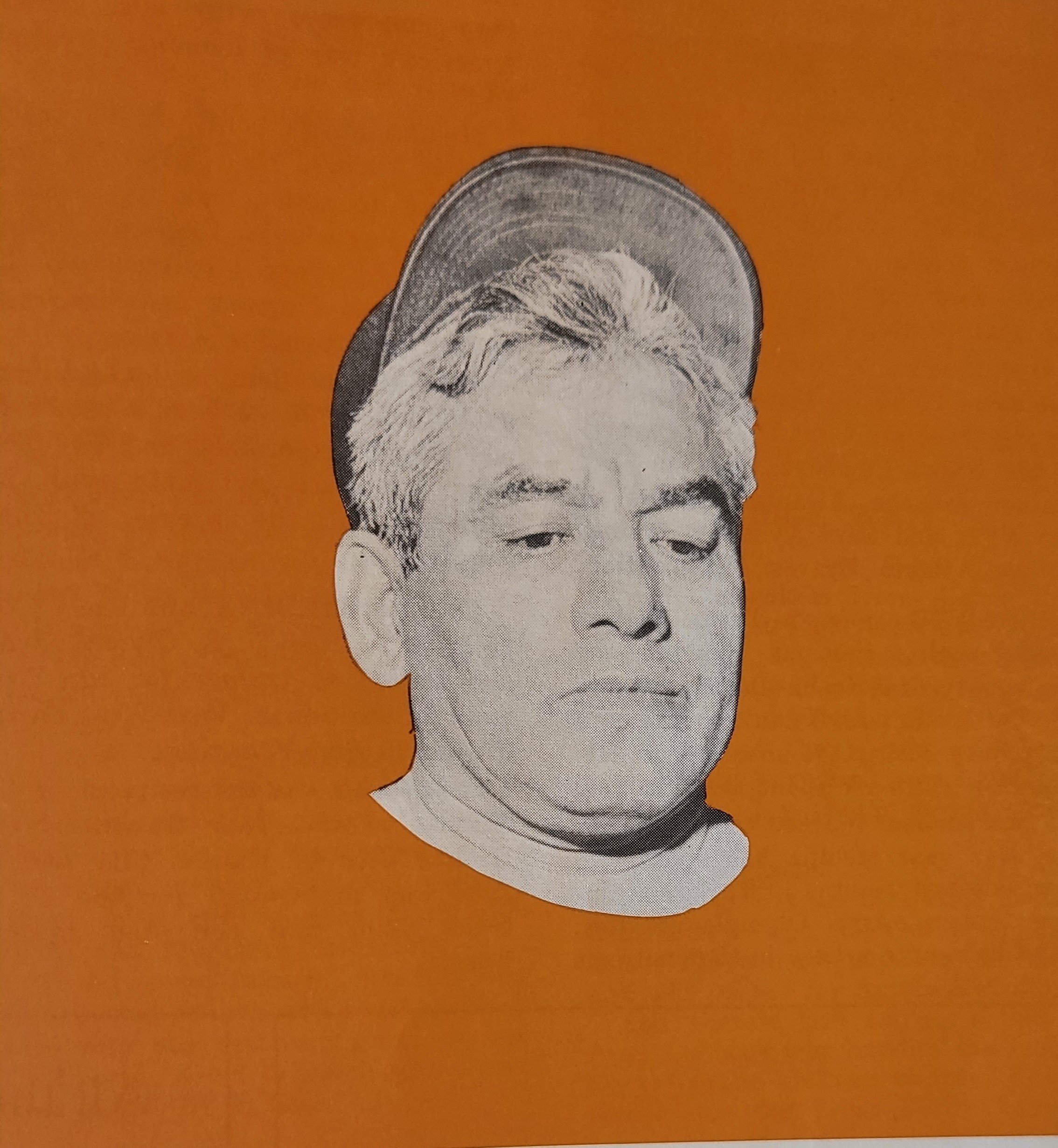

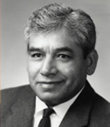
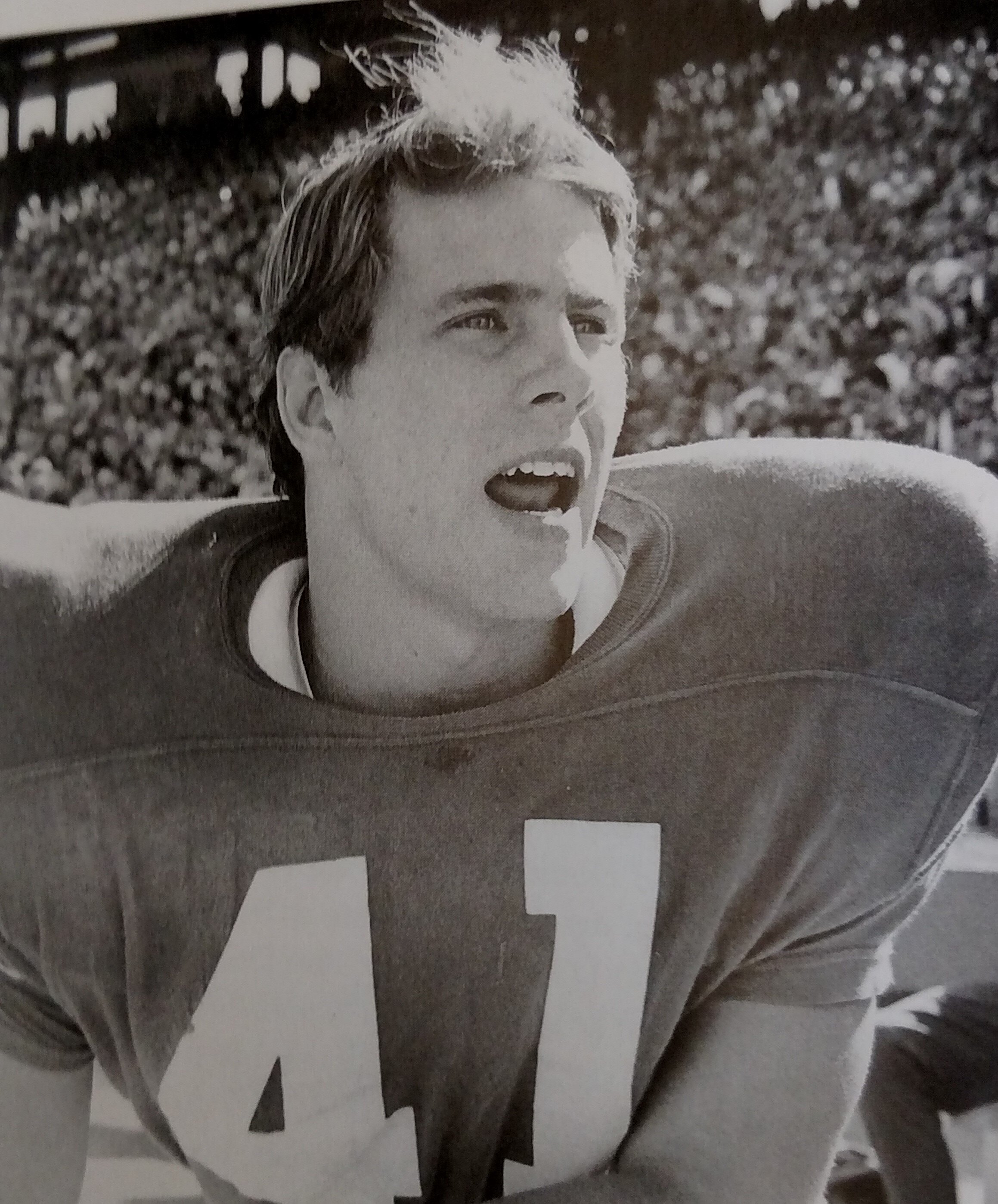

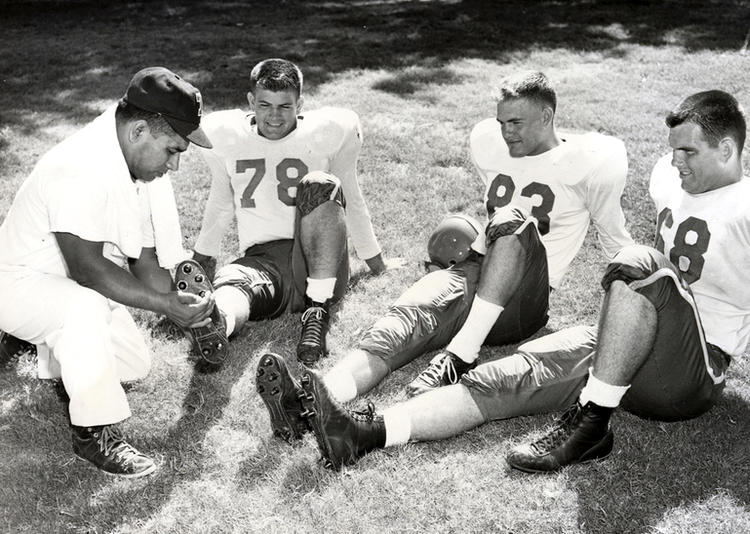
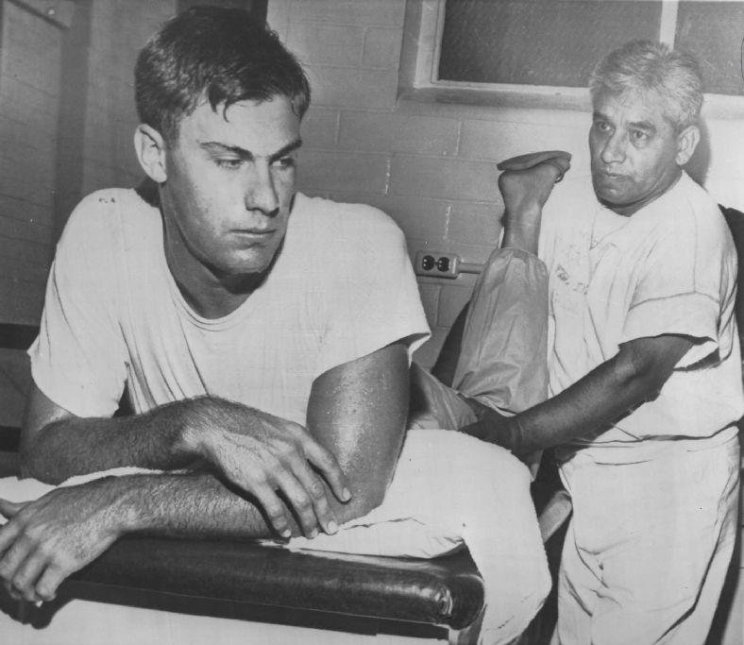
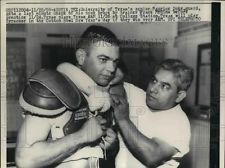
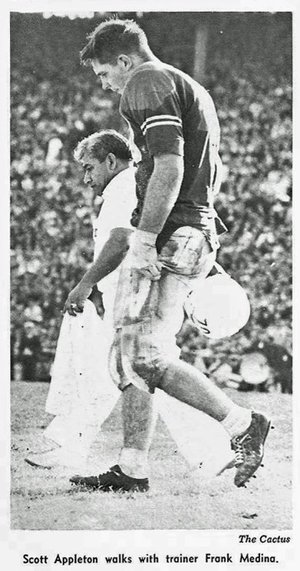
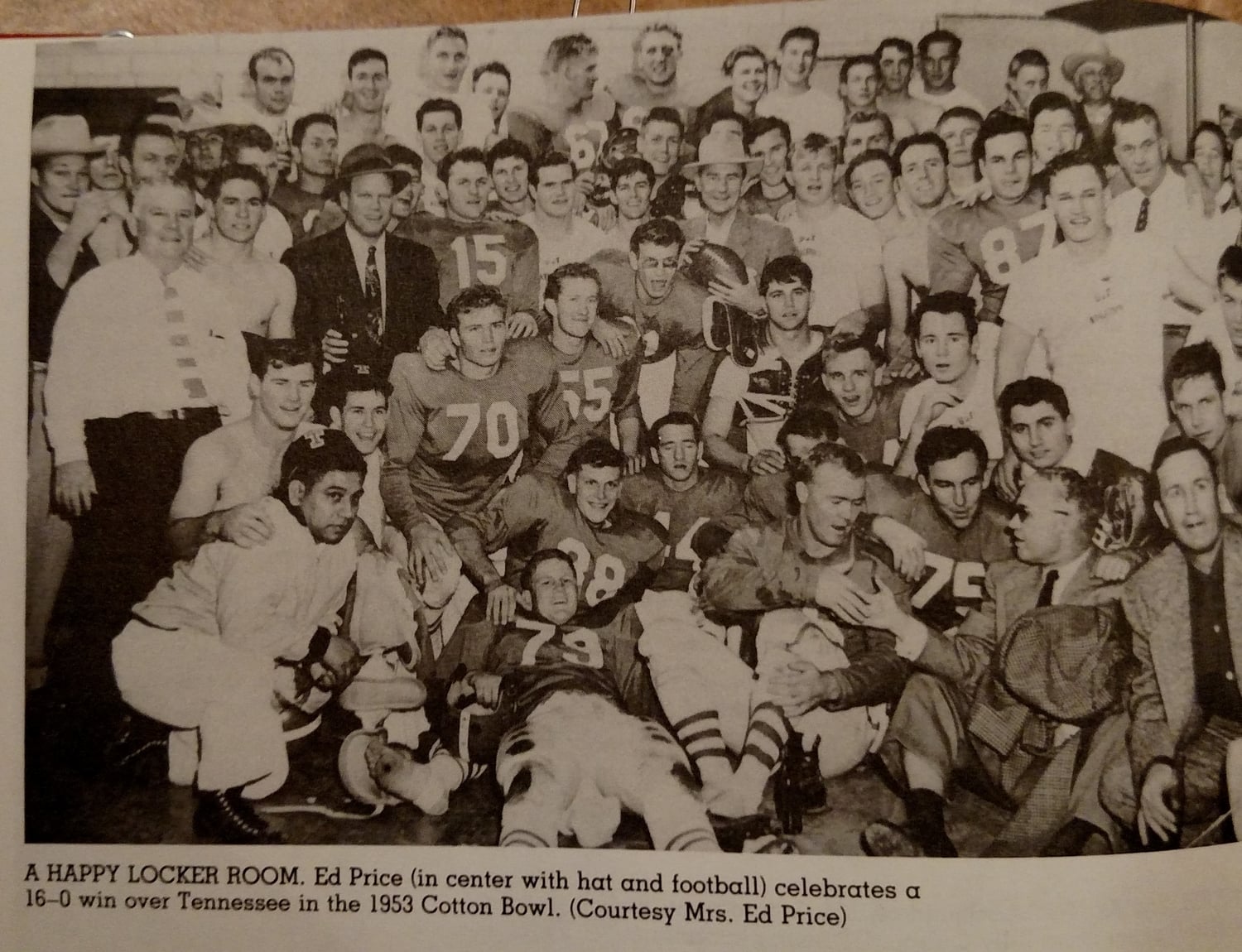
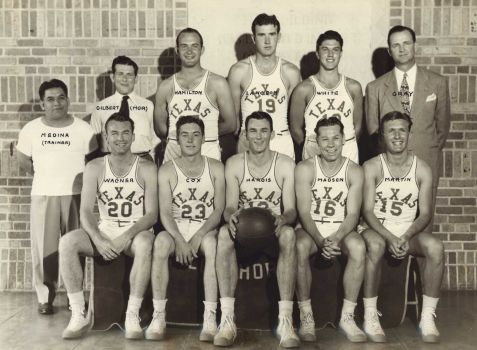
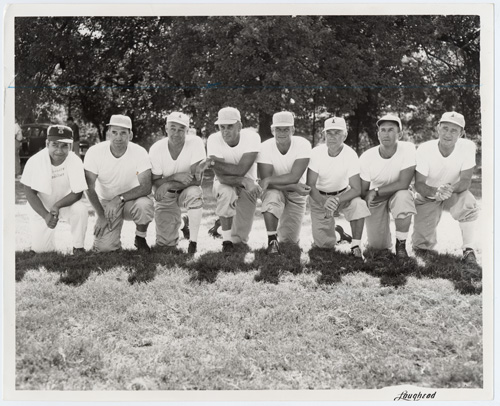

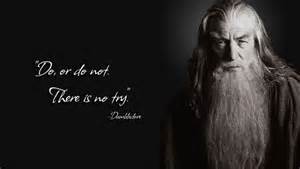



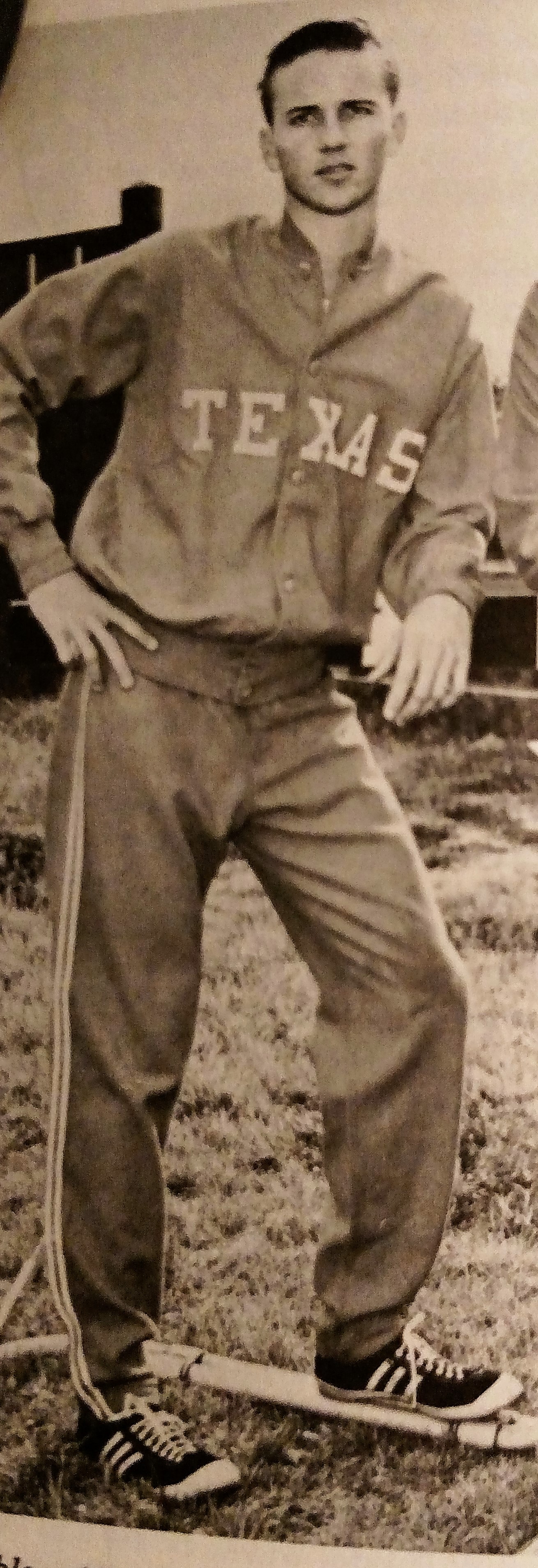
![Earl Campbell , fullback, 1974-1977- new football coach Fred Akers tells Earl to lose 20 pounds before the season. Earl then said [to Frank]: 'I want to win that award [Heisman Trophy] next year.' Medina said, 'If you want to win that aw](https://images.squarespace-cdn.com/content/v1/54abf074e4b0b6dc3e24eebb/1597829384975-550ENMVAPWQL1VETJCE0/Earl+11.jpg)
